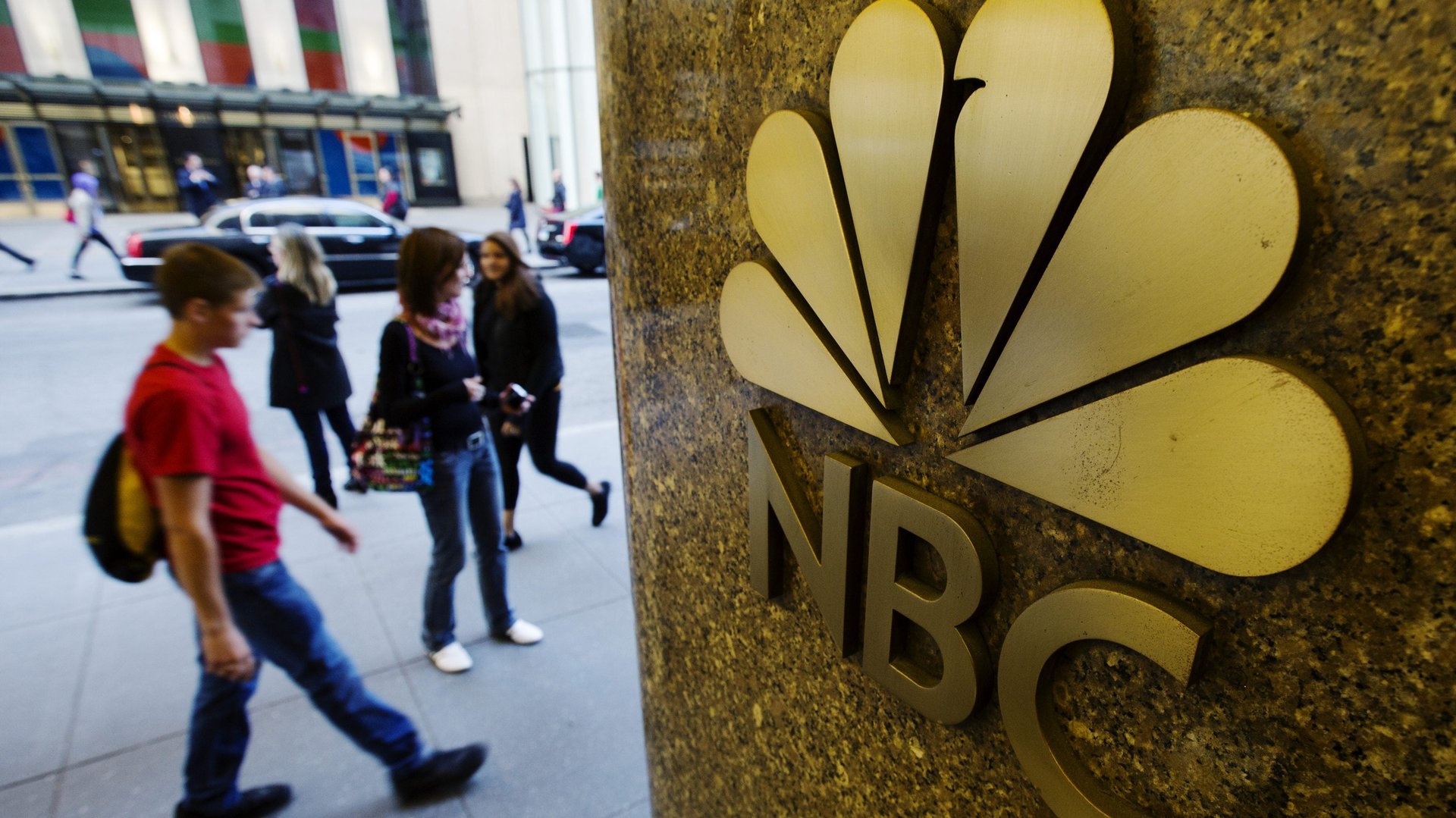Broadcast TV networks are now upstaged by cable even at their own parties
The death of the network television drama has been long, and it’s been slow, but it’s never been more real than it was on Monday morning (May 16) at Radio City Music Hall in New York City.


The death of the network television drama has been long, and it’s been slow, but it’s never been more real than it was on Monday morning (May 16) at Radio City Music Hall in New York City.
At NBCUniversal’s annual pitch to advertisers, called an upfront, the entertainment mega-company showed off its new and returning TV shows to a theater full of media buyers, celebrities, and journalists. Normally, NBC—being the illustrious broadcast network that is is—gets its own glitzy event. But not this year.
For the first time, NBCUniversal combined NBC with Telemundo (its Spanish-language network) and its arsenal of cable channels (including USA, Syfy, and E!) for one three-pronged upfront presentation. The juxtaposition left the 80-year-old flagship network—one of the original big three in US television—looking like just another low-brow channel in a sea of many.
Not only was NBC marginalized, but it actually looked worse in comparison to the company’s own cable channels. I wasn’t the only person to notice this happening:
As an example: Watch the preview for NBC’s new time-travel series, Timeless (video), and then watch the trailer for season two of USA Network’s brilliant drama Mr. Robot (video). They both debuted at the upfront presentation, but the cable drama promises to be Emmy-worthy fare, while the network drama will be lucky to make it past one season before getting cancelled.
In fact, a network drama hasn’t been nominated for best drama series at the Emmys since 2011, when CBS’s The Good Wife (which just ended, and may have been the last great network drama) and NBC’s Friday Night Lights were both in consideration, before losing to AMC’s Mad Men, a cable show. The last network shows to win were Fox’s 24 in 2005 and ABC’s Lost in 2004.
The death of the network TV drama has been happening, steadily, for more than a decade. Ambitious storytellers now take their shows to cable or streaming services. What succeeds on network TV—and what Americans consistently watch—are the bland, safe series like NBC’s never-ending lineup of Chicago-based shows (Med, P.D., Fire, and soon, Justice) or the sometimes-entertaining pap of The Blacklist or Blindspot.
NBC is far from the only broadcast network to be diminished by the comparison with its sister channels. Put Fox up against its basic cable channel FX, or CBS up against the premium channel Showtime, and the networks would look similarly mediocre.
At Monday’s upfront, NBCUniversal decided to preview its shows by fan base, instead of by channel. That meant that NBC, USA, and Syfy shows would all be grouped together, without much to distinguish them other than a small network logo displayed on the screen before each trailer played.
That decision was strategic. “Our event will reflect the way we go to market as a unified portfolio, which makes it easier for our clients to do business with us all together,” said Linda Yaccarino, NBCUniversal’s head of advertising sales, in a statement. The move also had a practical benefit—attendees would only have to go to one event, instead of three.
But it’s a sad state of affairs. NBC is used to being the belle of the ball. On the Radio City stage yesterday, it was anything but.